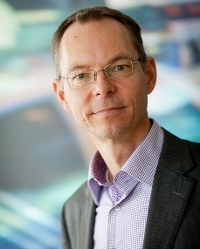
Is there an easier way to collect taxes?
Tax collection has become highly complex and the system is creaking at the seams. Is there an easier way to collect taxes? This is the question raised by Rex Arendsen, Professor of Tax Law, in his inaugural lecture on 16 September.
Test framework
Arendsen presents in his lecture a framework for testing the practicability of a new tax system: what conditions does it have to meet in order for it to work in practice? He lists a number of requirements: it has to be compatible with the current system; it has to be feasible and it also has to meet certain expectations in terms of compliance by citizens and businesses.

Precarious exercise
Taxation is actually a violation of property rights committed by the state, Arendsen hypothesises in his lecture. That makes it a precarious exercise, and whether or not it is accepted stands or falls with doing justice to the taxpayer. But, the more you try to do justice to the different groups of taxpayers, the more complex the system becomes.
Digital information system
The ancient Roman Empire, like the Byzantine Empire, had a well-oiled system for collecting taxes. However, the world was a lot simpler then. Recent decades have seen tax collection rapidly become a digital information system, based on collection, provision and processing of data. Collecting taxes has become a system of abstract constructions that can at best be no more than an approximation to reality.
Taxable individuals and businesses do a lot of the work
Arendsen describes this development neatly as moving 'from stamps to sockets'. In this transition, data collection increasingly takes place outside the tax authority: much of the work is done by businesses and individual taxpayers themselves. Acceptance of this administrative burden has its limits, Arendensen remarks. The practice in recent years of providing taxpayers with a partly pre-completed form is one way of reducing that burden.
Two lines of research
Arendsen's research focuses on two particular aspects:
- the historic development in which Indonesia seems to be playing a leading role in introducing and implementing new taxes;
- the societal context, where he will explore the possibilities for simplifying the system.
New principles
Research on simplification are complicated by the many new developments in the field. Take, for example, the principles on which tax collection is based. For decades tax liability has no longer been restricted to solely material goods, such as buildings, land and the income from them, and industrial products. Non-tangible digital information is increasingly becoming regarded as a commodity and a means of creating value. Arendsen describes it as a paradigm shift. Another question is whether income and profit should form the basis for raising taxes, or should the emphasis shift to economic digital transactions for example?
Exploratory and experimental
It's unavoidable, Arendsen says, that his research on this last point should be primarily exploratory and experimental, focusing on the practical aspects of implementing such new concepts. But he believes the opportunities are good.
Professor Rex Arenden holds the extraordinary Van der Poel chair in MThe Social and Historic Context f Tax Law, founded by the Tax and Customs Museum. Arendsen also works for the Tax Authority where he heads the research at the Centre for Knowledge and Communication. (Read more - in Dutch)
A more extensive version of this inaugural lecture will be published by Sdu Uitgevers in The Hague: Eenvoudig belasting heffen; tussen droom en daad (A simple system for collecting taxes: somewhere between dream and reality) by R. Arendsen.
